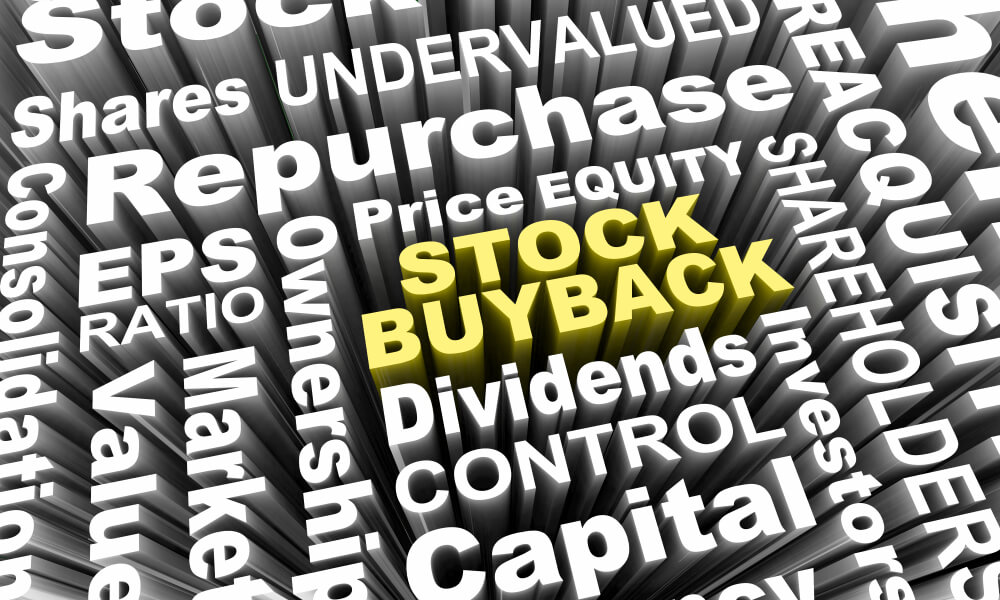Dallas Mavericks owner Mark Cuban made an interesting point Wednesday saying the federal government should ban stock buybacks for companies receiving bailouts due to the coronavirus slowdown, and President Donald Trump said today “that would be OK with me.”
Cuban, also a billionaire investor and co-star of ABC’s “Shark Tank,” said a lot of companies asking for bailouts have been spending cash buying their own shares back the past several years, and it shouldn’t be allowed.
“No buybacks. Not now. Not a year from now. Not 20 years from now. Not ever,” Cuban said on “Squawk Box.” “Because effectively you’re spending taxpayer money to buy back stock, and to me that’s just the wrong way to do that.”
In somewhat of a surprise given his business-friendly nature, President Donald Trump said today he’s “never” been a fan of buybacks and he’s open to such a condition.
“It takes many, many people in this case to tango but as far as I’m concerned, conditions like that would be OK with me,” Trump said today during a press conference. “It’s very hard to tell them not to (buy back shares), but I would tell them not to. I would say I don’t like it.”
The comments from Cuban and Trump come as the White House and Congress plan a stimulus package in excess of $1 trillion to combat the slowdown caused by the COVID-19 pandemic wreaking havoc on economies and markets around the world.
Millions of people are working from home while jobless claims are soaring. Restaurants, bars, retail shops, auto plants and countless other businesses are in limbo as the U.S. tries to get the outbreak under control.
At the crux of Cuban’s argument is that some of the companies now seeking bailouts have spent billions of dollars the past several years buying back their own stocks. Had they not done so, they would be in better financial position to ride out this storm.
Perhaps the best example right now is airlines, which are seeking $50 billion in aid, including grants they won’t have to pay back.
The top four U.S. airlines, Delta, American, Southwest and United, have together spent about $39 billion in the past five years buying back their own stocks, which are now trading at multi-year lows after the past month’s crash. Plane maker Boeing, which has cratered a staggering 70% in the last month alone, from about $340 a share to just under $100 as of 1 p.m EDT today, spent more than $35 billion on buybacks in the past 5 years.
Now lawmakers from both sides of the aisle have expressed disgust and said the rules should be changed.
Why Banning Stock Buybacks for Bailouts Isn’t the Best Solution
Banyan Hill Publishing Chartered Financial Analyst and Chartered Market Technician Clint Lee said things aren’t as simple as banning stock buybacks for bailouts, which would ultimately hurt the companies and their shareholders.
“I can remember not too long ago that investors were upset with companies that carried too much cash on their balance sheet. They would clamor for buybacks or special dividends. Now you can’t have enough cash on the balance sheet,” Lee explained. “High-quality companies are obviously being rewarded now.”
Instead, Lee argues, there is a more fair compromise that won’t hurt great companies because hardly any, no matter how great they are, will come out of the pandemic unscathed.
“I agree that share buybacks should be banned while a company is in possession of bailout funds, but not that they should be banned forever. A buyback is just returning capital to shareholders, like paying a dividend in a way,” Lee said. “My take is that a company could resume buybacks only once bailout funds have been fully repaid. Lets face it, there are solid business franchises out there that will need some form of bailout. This wasn’t the reckless actions of a specific industry that took the whole economy down like in the 2008 financial crisis.”
Cuban also mentioned on Twitter that companies shouldn’t be allowed reprice benefits for executives while cutting out average employees.
I know this is early but wanted to get ahead of the politics. If we are going to bailout companies we need to make sure all employees benefit from a turn around, not just execs. @jimcramer @CNBC @CNBCFastMoney @ScottWapnerCNBC pic.twitter.com/sWaCEQiZua
— Mark Cuban (@mcuban) March 17, 2020
Lee, who works on Banyan Hill’s The Bauman Letter, agrees and thinks additional measures aimed at CEO pay should be taken.
“There should be more strings attached as well than just buybacks,” Lee said. “Cuban also advocated that stock options should not be repriced to benefit executives during this bear market, which I agree with as well.”
Editor’s note: Do you think companies should be banned from buying back their own stocks if they take bailouts? Or do you agree with Lee that there is a better compromise? Do you have any ideas of your own? Share your thoughts below.
